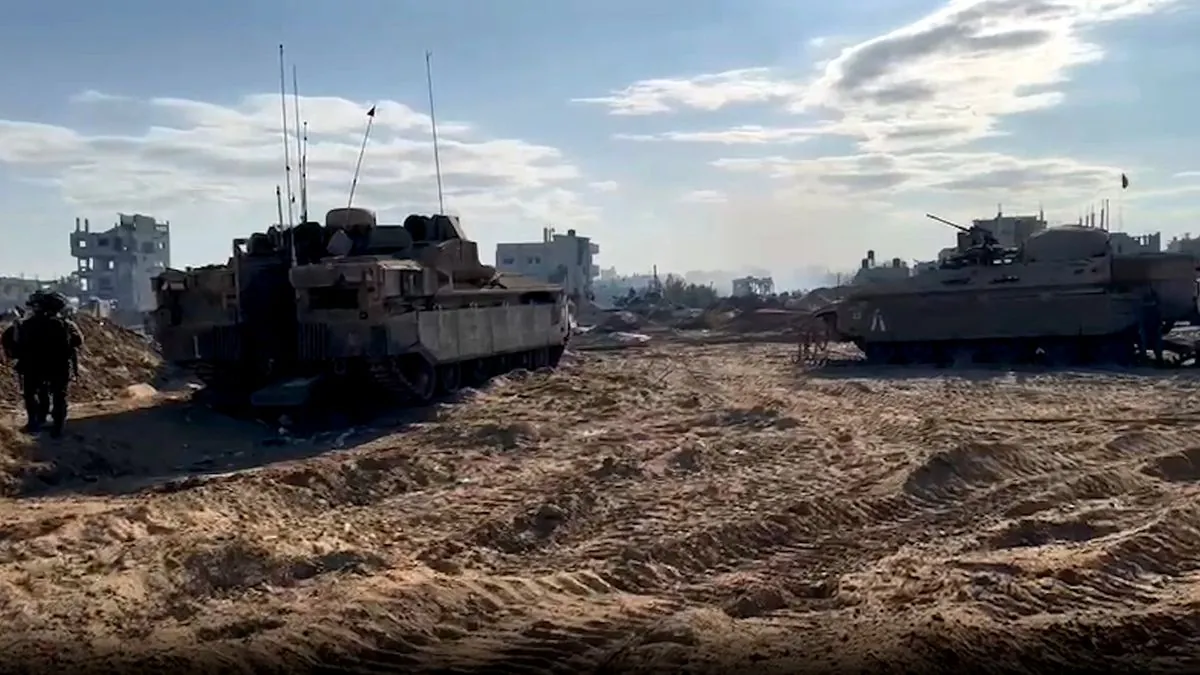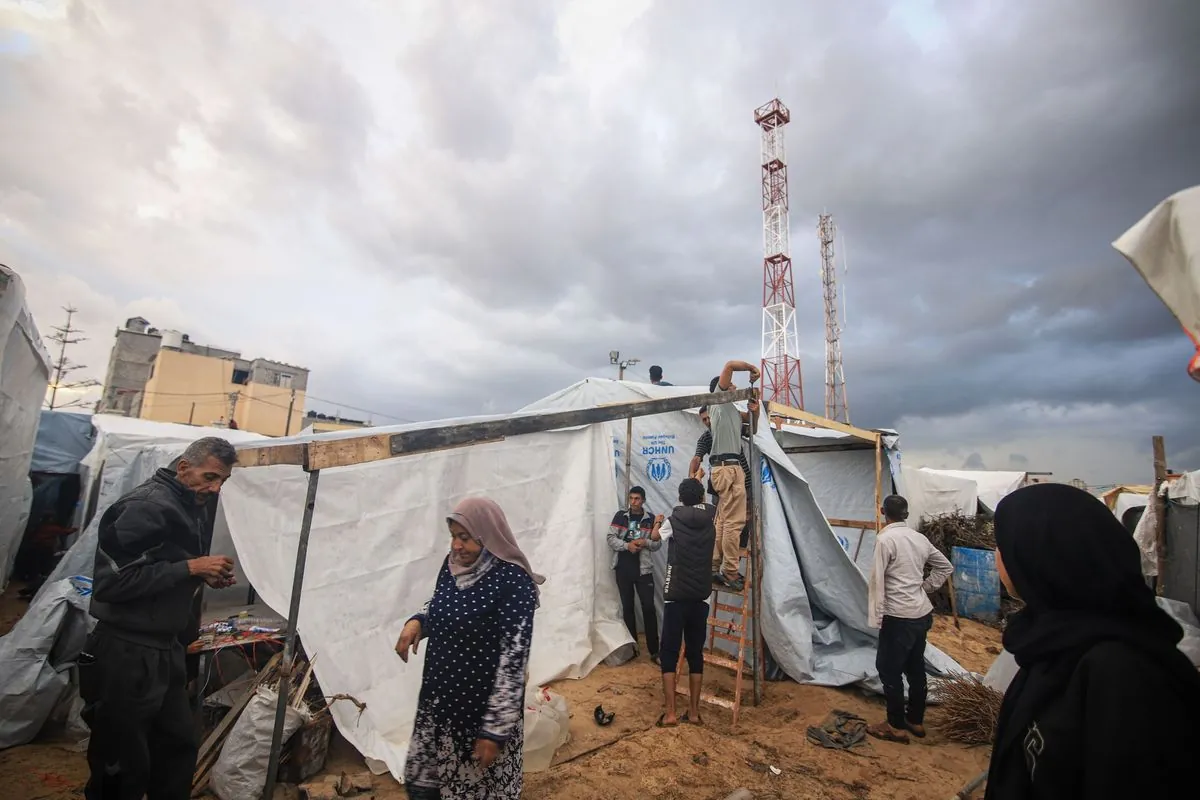Israeli Forces Advance in Gaza as Casualties Mount Amid Stalled Peace Talks
Israeli military intensifies operations in Gaza, causing civilian casualties. US diplomatic efforts for ceasefire face challenges as Hamas and Israel maintain firm positions. Humanitarian crisis deepens.

In a significant escalation of the ongoing conflict, Israeli forces have intensified their military operations in the Gaza Strip, pushing deeper into central and southern areas. Palestinian health officials report that at least 22 people have been killed in recent Israeli strikes across the enclave.
This surge in military activity comes shortly after U.S. President Joe Biden urged Israeli Prime Minister Benjamin Netanyahu to expedite efforts for a truce and secure the release of hostages. The conversation took place on August 21, 2024, following U.S. Secretary of State Antony Blinken's regional diplomatic tour, which concluded without a breakthrough in the 10-month-old war.
The conflict, which began on October 7, 2023, has had devastating consequences for the Gaza Strip, one of the world's most densely populated areas. Over 40,000 Palestinians have lost their lives, according to local health authorities, highlighting the severe humanitarian crisis in the region.

In Beit Lahiya, northern Gaza, 11 individuals perished in a strike on a residential building. Another attack in Al-Maghazi camp in central Gaza resulted in six fatalities, including a local journalist. The Israeli military claims to have neutralized 50 militants in Rafah over the past day, while also dismantling military structures and locating rockets in Deir Al-Balah and Khan Younis.
The ongoing conflict has led to widespread displacement, with many of Gaza's 2.3 million residents forced to relocate multiple times. In Deir Al-Balah, which currently houses around one million residents and displaced individuals, Israeli tanks have advanced, blocking roads and pushing families out of their temporary shelters.
"Last night drones began firing towards the tents, we ducked down, for maybe hours, then the noise of tanks got louder as they advanced closer, so we decided to run. We are five families, 48 persons, we ran to the beach, some slept on the road, others slept onshore, just on the sand with no tents, no blankets or mattresses and you can imagine how terrified were the children and women."
The humanitarian situation in Gaza continues to deteriorate. The region faces severe water scarcity and quality issues, while its healthcare system struggles under the strain of conflict and blockade. The Gaza Strip, approximately 41 kilometers long and 6-12 kilometers wide, has been under an Israeli-Egyptian blockade since 2007, exacerbating economic hardships and limiting access to essential resources.
As peace talks stall, Hamas maintains its demand for an end to the war and the release of Palestinian prisoners in exchange for hostages. Conversely, Netanyahu insists on the complete defeat of Hamas before considering any ceasefire. This impasse continues to prolong the suffering of civilians caught in the crossfire.
The international community watches closely as the conflict unfolds, with hopes for a resolution that can bring peace to this troubled region and address the urgent humanitarian needs of its population.


































